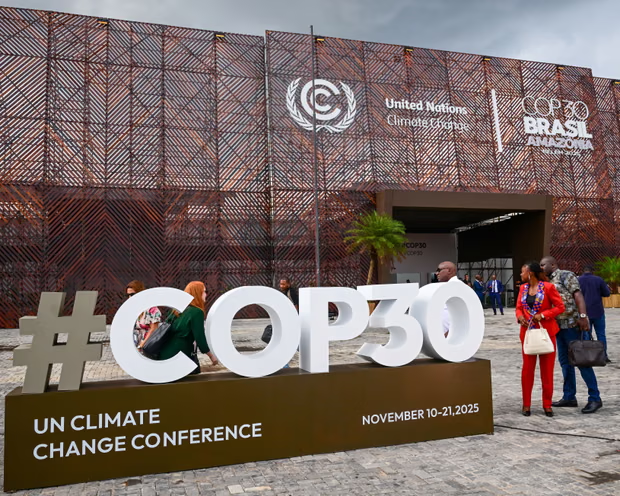What is COP30?
COP30 (the 30th Conference of the Parties to the UN Framework Convention on Climate Change, or UNFCCC) is being held from 10–21 November 2025 in Belém, Brazil. This global summit brings together nearly every country in the world, alongside scientists, civil society, Indigenous representatives, and business leaders, to tackle the increasingly urgent climate crisis (UNFCCC, 2025).
At its core, COP30 is about forging consensus on how to limit global warming to 1.5°C, a goal first established in the Paris Agreement. Delegates will present updated Nationally Determined Contributions (NDCs), national plans outlining future climate commitments, and review past pledges, including financial support made at COP29 (UN, 2025).
Looking ahead
As the world turns its gaze to COP30 in Belém, Brazil, anticipation is tinged with frustration. After nearly three decades of global climate conferences, the pace of progress continues to lag dangerously behind the targets required to secure a sustainable future, let alone a thrivable one. While nations debate incremental carbon cuts, the world is already witnessing unprecedented biodiversity loss, escalating inequality, and the deepening effects of climate disruption. The focus remains fixated on mitigation and adaptation within the narrow lens of sustainability, doing “less harm”, rather than the broader and bolder ambition of thrivability: enabling humans and nature to flourish together.
The THRIVE Framework calls for systemic, regenerative change built on twelve foundational focus factors (12FFF), including energy, biodiversity, health, and governance. Yet, COP discussions continue to overlook the interconnectedness of these dimensions, often treating climate as a single-issue crisis instead of part of a complex, living system.

The Interconnected nature of climate change issues
The interconnected nature of climate change can be witnessed through interwoven factors such as stable economies, often dependent upon extractive industries and contributing to many geopolitical tensions worldwide, both within and between nations. Our food systems, transport systems, and broader societal infrastructure need to be examined holistically, based on the best science, in all their impacts if we are to address climate change effectively. Only by looking at climate change systemically and holistically can it be claimed that this issue is taken seriously. Falling short of this misses the big picture.

The Need for systemic and holistic solutions
If only one area connected to climate change is addressed at the policy level, adverse effects in other areas can stagnate any real progress. This is why governments need to innovate and look to address climate change in the areas most responsible for causing it, as well as introducing policy to offset any adverse economic effects of addressing climate change, by adopting regenerative, systemic and holistic solutions. By doing so, this can ensure that thrivability is the outcome, in which environmental, social and economic flourishing can then occur. If COP30 is to make history, it must move beyond short-term political cycles and embrace measurable pathways toward thrivability, where prosperity, equity, and ecological restoration become central to policy, not afterthoughts. Anything less risks repeating the failures of the past.























